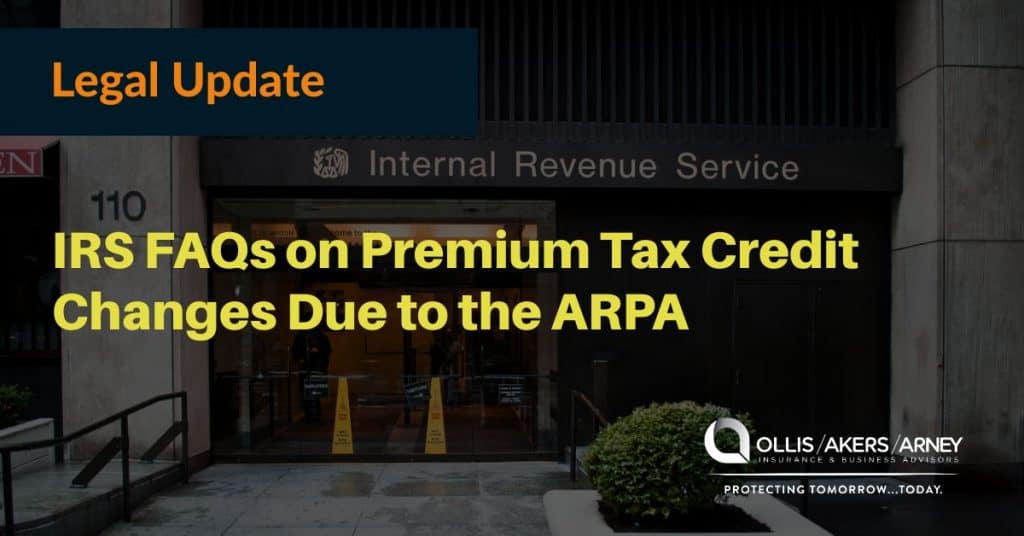On April 9, 2021, the Internal Revenue Service (IRS) released a fact sheet containing FAQs addressing changes for taxpayers who received advance payments of the 2020 premium tax credit (PTC) due to the American Rescue Plan Act (ARPA).
Understanding how recent legislative changes for the PTC affect individuals, families and their 2020 tax return is important. The IRS developed this fact sheet to explain what taxpayers need to know about claiming a net premium tax credit (net PTC) and what to do if they have excess advance payments of the premium tax credit (APTC) for tax year 2020.
Guidance for 2020
The ARPA suspends the requirement that taxpayers repay any excess APTC they received for the 2020 tax year. A taxpayer’s excess APTC is the amount by which the taxpayer’s APTC exceeds the premium tax credit amount he or she is actually entitled to, based on his or her actual income for the year.
The IRS recently announced that, for the 2020 tax year, taxpayers with excess APTC for 2020 are not required to file Form 8962, Premium Tax Credit, to reconcile their APTC with the amount of PTC they are entitled to claim for 2020. They should not:
- Report an excess APTC repayment on their 2020 Form 1040 or Form 1040-SR, Schedule 2, Line 2; or
- File Form 8962.
However, eligible taxpayers claiming a net PTC must file Form 8962 when they file their 2020 tax return. If the taxpayer’s PTC calculated on the return is more than the APTC paid on the taxpayer’s behalf during the year, the difference is a net PTC.
See Form 8962 and its instructions for more information.
Provided to you by Ollis/Akers/Arney Insurance & Business Advisors
This Legal Update is not intended to be exhaustive nor should any discussion or opinions be construed as legal advice. Readers should contact legal counsel for legal advice. ©2021 Zywave, Inc. All rights reserved.


